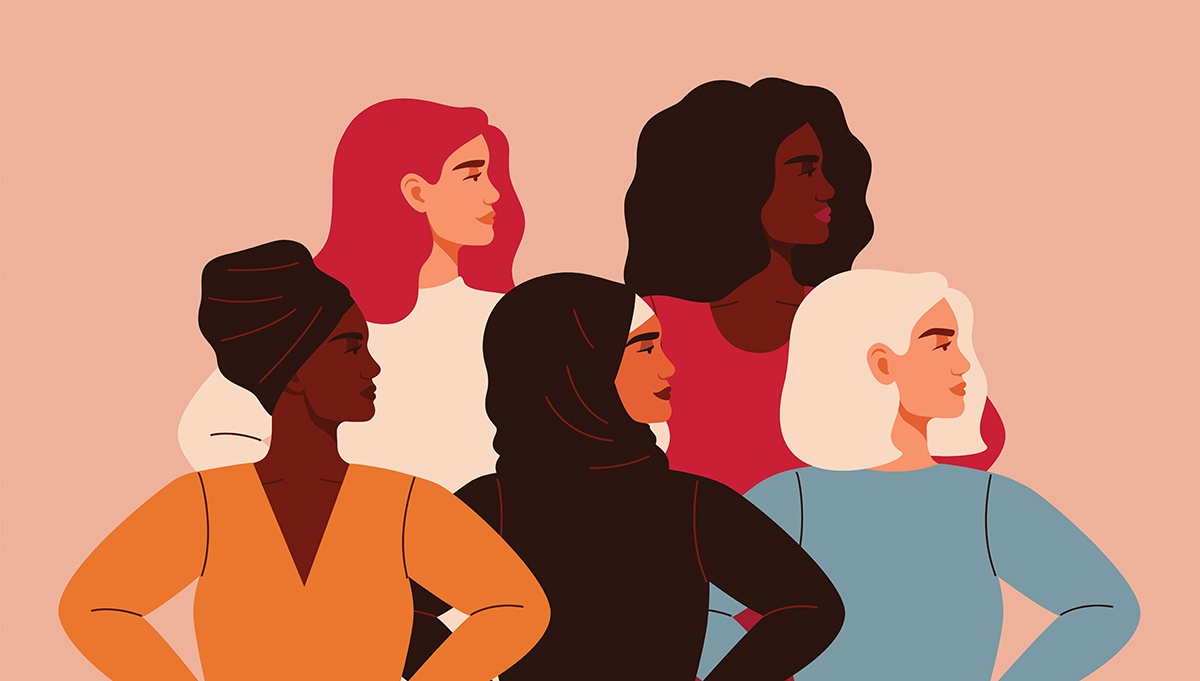A data-driven path toward gender equality

By now, we’ve seen from data that exists across the world, women have been harder-hit economically by the COVID-19 pandemic than men. In the US, 2.2 million fewer women were in the workforce in September 2020 than the year before. The force behind this data essentially boils down to the fact that, before the pandemic, women were already doing disproportionately more unpaid labor. While this reality was maybe well-known or felt, it wasn’t easy to see or comprehend when the data wasn’t measurable. But with COVID-19, unpaid labor swelled, wiping women out of the workforce at rates much much higher than men. Suddenly, we had tangible data on an issue that had been lying beneath the surface for decades.
For as long as Tableau Foundation has existed, we’ve invested in partners like Equal Measures 2030 and The ONE Campaign that focus on eradicating gender-based inequalities around the world, and use data to advocate for progress. The pandemic exacerbated many pre-existing inequities for women and girls around the world, creating even more urgency around this work, and put a spotlight on using data to understand these inequities—and the need for more data to understand them.
Debuting Tableau Foundation’s new and evolving Gender Equality portfolio
As we focus on improved gender equity with new and expanded relationships, we will advocate for more and better data, disaggregated by gender—and race, with the understanding that gender and racial biases often overlap—to understand the global challenges women face. To that end, we’ve built a new Gender Equality portfolio for the Tableau Foundation, striving for stronger data collection with these global challenges. Without data, making the case for progress—and actually making progress—will be an uphill battle. But I’m encouraged by this enhanced focus and our partners’ commitment to use data for progressive change, and to implement programs that improve the lives of women and girls everywhere.
Just this past year, our partner EM2030 launched a Data Journalism Fellowship to train 15 women journalists on using their Sustainable Development Goals (SDG) Gender Data Index to tell stories relating to the SDGs and progress for women and girls. For years, EM2030 has been committed to making data on gender-based inequalities accessible to advocates worldwide. We’re proud to support their efforts in expanding data literacy, analysis, and stories that will reach a wider audience with greater impact.
Our expanded gender equality goals: maternal health, financial inclusion, economic mobility, and political parity
As we expand our gender equality work, we’re aware that for so many issues women face—domestic violence, health inequities, and financial well-being—there are still gaps in data and understanding.
We want to advocate for more and better data collection and analysis on these wide-ranging issues. We also want to take immediate action. There are many areas where strong data does exist, but could benefit from more analysis and understanding from a broader audience. Let’s take a closer look at our latest gender equality focus areas.
Maternal health
This is an area where good data actually exists, but where we believe more analysis and storytelling can make an enormous difference in improving equity. Our partners at Operation Fistula, for example, are using data to call attention to the need to end obstetric fistula—a devastating yet curable condition resulting from high-risk childbirth that primarily affects low-income women. Operation Fistula is shining a light on the prevalence of this condition to call for more resources to treat it. Around the world, there are so many more aspects of maternal health where data could make a difference. Looking specifically at maternal health in the United States, we know there are substantial differences in outcomes for women along the lines of race and ethnicity. We want to push to make this data more visible and understood to advocate for equity.
Financial inclusion and economic mobility
The gender data movement at large has identified that financial service providers have historically underserved women, and women are consistently locked out of equitable prosperity. Our partners at The ONE Campaign have been raising awareness of gaps in women’s financial inclusion for years. According to their data, human capital wealth could increase 22 percent if women earned as much as men. Strong data exists from governments and the financial services industry on wealth and financial inclusion, but so much of it could benefit from more analysis and understanding with respect to gender. Digging into this data disaggregated by gender could shed light on barriers that women face to financial inclusion—and also the opportunities for the entire global economy if women can fully participate.
Political parity
Looking at maternal health and financial inclusion—and so many parts of society not covered by these focus area—it’s clear that historical policies advanced by overwhelmingly male leadership have produced longstanding inequities. EM2030’s SDG Gender Data Index clearly shows that women are not equally represented in politics. In the 129 countries that are part of the index, women hold one in five leadership positions globally. We need more women in political leadership to advance global equity and inclusive solutions and policies ensuring that women can thrive and fully participate in society.
As Tableau Foundation expands its gender equality work, we’re proud to continue partnerships with organizations like Equal Measures 2030 and The ONE Campaign, which have been advocating for years for data-driven policies to support women and girls around the world. And we’re excited to forge new partnerships as we dive deeper into these three core pillars, advancing the collection, analysis, and sharing of data to support gender equality.
Visit the Tableau Foundation website to learn more about our work.
Autres sujets pertinents
Abonnez-vous à notre blog
Recevez toute l'actualité de Tableau.








